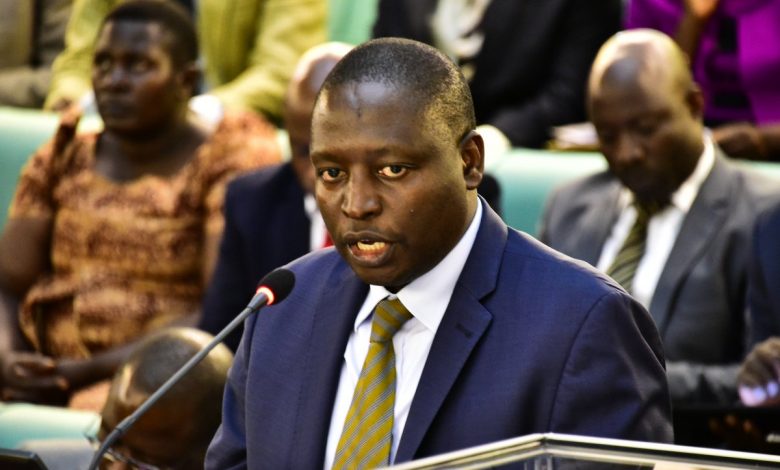We will never change our position on homosexuality, Minister Bahati hits back at US

David Bahati, the Minister of State for Trade, Industry and Cooperatives has responded to the decision by the United States to disengage Uganda from the AGOA market, saying Uganda won’t sacrifice its culture and values on the altar of homosexuality.
Bahati made the remarks during a media interview with journalists who cover Parliament, arguing that the decision made by Parliament on homosexuality in Uganda was intended to defend the institution of family.
The minister reaffirmed that Uganda’s belief that marriage as understood biblically and culturally, is meant to be between the union of a man and a woman.
“We took it (decision on Anti-Homosexuality Act) soberly, consciously, well knowing that those who oppose us would blackmail us and want us to take some decisions that affect us both economically and even politically. So, we still stand & we shall forever stand for the decision we made against homosexuality in this country & whatever comes, we are ready to find alternatives to mitigate the effects of that decision,” said Bahati.
According to the minister as government, they aren’t really scared about this market, adding that it is a market Uganda would have loved to supply, but if it comes to making a choice between allowing homosexuality and going with the American market, then government chooses to fight homosexuality.
That is our choice and that is a choice that we stand with and we aren’t scared about this because we know that we have alternative markets and what we need to do now is to continue improving the standards of our goods so that we can supply the markets in Europe, Asia and the African market alone, is enough to consume what we are producing now,” added Minister Bahati.
Minister Bahati also promised to continue praying for Americans so that they change their minds against supporting homosexuality and said the NRM Gov’t will also continue defending human rights both in Uganda and in Africa, and those involved in human rights violations would be punished.
Minister Bahati said, “It is unfortunate that the Americans have taken this decision, it is unfortunate that they have chosen the wrong path of history which is supporting a man marrying a man or woman getting married to a woman and we continue to engage them, we continue to pray for them so that they can change their minds, but Uganda will never change our position on the issue of homosexuality.”
The Minister added, “We will wait for February and see whether Uganda will vanish from planet earth, but what I know, we will continue to build our capacity for imports substitution and we hope that at one time, they realize that the decision that they have taken is a wrong decision. We will continue to defend human rights because the NRM Government is a chief defender of human rights even on the continent, we still have that good record and where there have been abuses of human rights, those abuses are punishable according to the law.”
Bahati’s remarks come after Uganda along with three other African countries were officially struck off as beneficiaries of the African Growth and Opportunity Act (Agoa), effectively ending Kampala’s ability to export certain commodities to the US duty-free.
According to President Joe Biden on 29th December US had determined that the four countries do not meet the requirements necessary to allow them to continue benefiting from the trade deal, effecting his earlier stated plans to delist them.
“Accordingly, I have decided to terminate the designations of the Central African Republic, Gabon, Niger, and Uganda as beneficiary sub-Saharan African countries for purposes of section 506A of the Trade Act, effective January 1, 2024,” read the statement by the US President.
The African Growth and Opportunity Act, or AGOA is a piece of legislation that was approved by the U.S. Congress in May 2000. The stated purpose of this legislation is to assist the economies of sub-Saharan Africa and to improve economic relations between the United States and the region.







